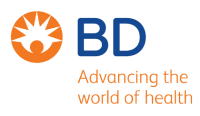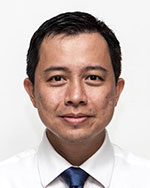Day 1 Lunch Symposium
| Title |  Current Trends in Superinfections in COVID 19 patients and Role of Microbiology – the Indian Experience Current Trends in Superinfections in COVID 19 patients and Role of Microbiology – the Indian Experience |
| Details | Date: 11 Nov 2021, Thursday Time: 1315 – 1415 hrs |
| Synopsis |
COVID 19 disease is caused by Severe Acute Respiratory Syndrome Related – Coronavirus 2 (SARS-CoV2), a new virus emergent in Wuhan China in December 2019 and the cause of the on- going pandemic. COVID 19 disease is associated with suppression of neutrophil, lymphocyte, macrophage and monocyte functions. This coupled with the use of immunomodulatory agents like corticosteroids and Interleukin 6 inhibitors further leads to immunosuppression eventually predisposing the patients to a variety of superinfections especially in those that are critically ill. While these infections increase the cost of therapy, length of stay , morbidity and mortality, they also pose a threat to antimicrobial stewardship efforts due to the rampant and broad spectrum use of antimicrobial agents. A large scale multicentric study of hospitalized patients from India identified the predominance of Gram negative bacteria with high rates of resistance to antimicrobial agents like carbapenems causing secondary infections. These infections were associated with approximately 10% mortality. Similarly , fungal infections like invasive candidiasis, aspergillosis and mucormycosis were also reported in large numbers with high rates of mortality. Microbiology has a very important role to play in the management of superinfections in COVID 19. It supports clinical management, infection prevention and control as well as antimicrobial stewardship programs. Blood cultures and site specific cultures remain the gold standard for detection of bacteria. Multiplex syndromic approach PCRs play an important role in the rapid diagnosis of atypical or non-cultivable organisms. Biomarkers like procalcitonin, galactomannan, Beta-D Glucan, antigen detection tests are also significant for diagnosis and prognosis of these infections. Serial procalcitonin estimation particularly has been particularly used to support antimicrobial stewardship activities like de-escalation of antimicrobial agents. This talk will highlight the Indian perspective of superinfections, associated risk factors and the role of microbiology laboratories in managing these infections in bringing better patient outcomes. |
| Objectives | Learning through experience sharing, on role of microbiology in management of super infections in COVID19. |
| Schedule | 30 mins Presentation and 15 mins Q&A |
| Faculty |
Dr James Sim Heng Chiak
Department: Microbiology, Singapore General Hospital Designation: Senior Consultant Dr Sim received his medical education from National University of Singapore and completed his specialist training in Microbiology at the Singapore General Hospital. He is a fellow of Royal College of Pathologists Australasia and he currently heads the Diagnostic Bacteriology Section, Department of Microbiology, SGH. His non-clinical portfolios include Chairperson of Pathology Biosafety Committee and co-chairperson of Laboratory Quality and Safety Unit in the Division of Pathology. His key interests include (1) next generation sequencing, (2) quality improvements and initiatives in the laboratory, (3) laboratory biosafety and (4) use technology in the practice of microbiology.
|
|
Dr Aruna Poojary, MD(Micro), DNB , D(ABMM), Dip HIC, CIC, DipRCPath
Head Of Department – Dept of Pathology & Microbiology Sr. Consultant Microbiologist & Incharge – Infection Control Breach Candy Hospital Trust, MumbaiDr. Aruna Poojary has 16 years of experience in Clinical Microbiology, Infection Control and Laboratory Administration. Currently , she is the Head of Dept of Pathology & Microbiology & Incharge of Infection Control at Breach Candy Hospital Trust , Mumbai . In past, she has worked as Laboratory Head of BSES MG Hospital & Research Centre, Mumbai.
Dr. Poojary completed her MD (Microbiology) & DNB (Microbiology) from KEM Hospital, Mumbai in 2006 & 2007 respectively . She completed her Diploma in Hospital Infection Control from London School of Hygiene and Tropical Medicine, UK in 2011. She further received her American Board Certification in Clinical & Public Health Microbiology, D(ABMM) in 2015. She is also board certified in Infection Prevention & Control (CIC) , 2017 and has a Diplomateship of The Royal College of Pathologists, UK ,2021 .
Dr. Poojary has 44 international and national peer reviewed publications and 3 book chapters to her credit. She has delivered >130 guest lectures in Infectious disease diagnostics and Hospital Infection Control at various National & International conferences and CMEs conducted by different medical societies. She is a member of ASM,ESCMID, IDSA , IAMM , HIS MF and SCM.
She is a postgraduate teacher for DNB Microbiology, FCPS – Medicine, Tropical Medicine & Diploma – Pathology & Bacteriology at College of Physicians & Surgeons of Mumbai. Dr.Poojary has keen interest in Laboratory quality management , hospital infection control and infectious diseases.
|
| Title |  Immunosenescence and the new recombinant zoster vaccine in the prevention of shingles Immunosenescence and the new recombinant zoster vaccine in the prevention of shingles |
| Details | Date: November 11, 2021 Time: 13:15 – 14:15 pm (SGT) |
| Synopsis | This presentation will focus on the burden of disease of shingles, how shingles is driven by immunosenescence and explore the associated risk factors. In addition, the new recombinant zoster vaccine against shingles will be introduced and practical guidance for implementing shingles vaccination into clinical practice discussed. |
| Objectives | To support the understanding of age-related decline in immunity, the burden of disease of shingles, and introduce the new recombinant zoster vaccine in the prevention of shingles. |
| Schedule | 13:15-1355 (40mins) Presentation 13:55-14:15 (20mins) Q&A |
| Faculty |
Dr Asok Kurup
Infectious Disease Physician Consultant at Infectious Diseases Care Pte Ltd Dr Asok Kurup is an adult infectious diseases consultant at infectious Diseases Care Pte Ltd, Mount Elizabeth Medical Centre and visiting consultant to the Department of Infectious Diseases, Singapore General Hospital.He was a former visiting consultant at the Communicable Disease Centre, Tan Tock Seng Hospital where he ran outpatient HIV clinics.
He was also a former teaching faculty at the Yong Loo Lin School of Medicine and Duke’s Graduate Medical School.
He is the current chair of the Antibiotic Stewardship Committee of Parkway Hospitals and the Chapter of Infectious Diseases Physicians of the Academy of Medicine, Singapore.
He has over 40 publications and 80 abstracts.
Research Interests: Primary HIV infection, Community-acquired bacterial infections, particularly melioidosis and klebsiella septicemia, invasive fungal infections, control of nosocomial Infections including novel strategies to control MRSA infections.
|
| Title | Effective management of cSSTI – bringing the focus back to the patient |
|||||||||||||||||||||
| Details | Date: November 11, 2021 Time: 13:15 – 14:15 pm (SGT) |
|||||||||||||||||||||
| Synopsis | Complicated skin and soft tissue infections (cSSTIs) are among the most treated infections in hospitals and are associated with increasingly resistant causative pathogens. Additionally, a rising number of patients hospitalized for cSSTIs have comorbidities. In this session, we discuss updates on the clinical practice and management strategies in cSSTIs, specifically on the optimization of patient outcomes with a focus on newer antibiotics. | |||||||||||||||||||||
| Objectives | • To share the latest data and guidelines for managing cSSTI, and updates on the current practice • To share experience on the challenges surrounding the diagnosis and treatment of cSSTI, and practical ways to overcome these • To provide an interactive platform through the use of case studies to discuss optimizing outcomes of patients with cSSTI |
|||||||||||||||||||||
| Agenda |
|
|||||||||||||||||||||
| Faculty |  Dr Hoe Nam Leong, Singapore Dr Hoe Nam Leong, Singapore
Leong Hoe Nam is currently Infectious Diseases Physician at Mount Elizabeth Novena Hospital, Singapore. He graduated from National University of Singapore in 1996, and obtained his MRCP and M Med in 2001. |
|||||||||||||||||||||
 Professor Murat Akova, Turkey Professor Murat Akova, Turkey
Murat Akova is Professor of Medicine with the Department of Infectious Diseases at Hacettepe University School of Medicine in Ankara, Turkey. He is President of the Turkish Febrile Neutropenia Society, and Past President of the European Society of Clinical Microbiology and Infectious Diseases and Turkish Clinical Research Association. |
||||||||||||||||||||||
 Dr Chia-Ying Liu, Taiwan Dr Chia-Ying Liu, Taiwan
Chia-Ying Liu is Head of Physician Hospitalist Inpatient Division and Attending Physician of the Infectious Diseases Division at Far Eastern Memorial Hospital, Taiwan. Dr Liu is also Adjunct Lecturer at National Taiwan University College of Medicine and Assistant Professor at Far Eastern Memorial Hospital. Dr Liu received his MD from National Taiwan University College of Medicine and MPH in Quantitative Methods from Harvard School of Public Health, USA. He has contributed to numerous publications in the field of infectious diseases, with a focus on nosocomial infection control and surveillance. |




